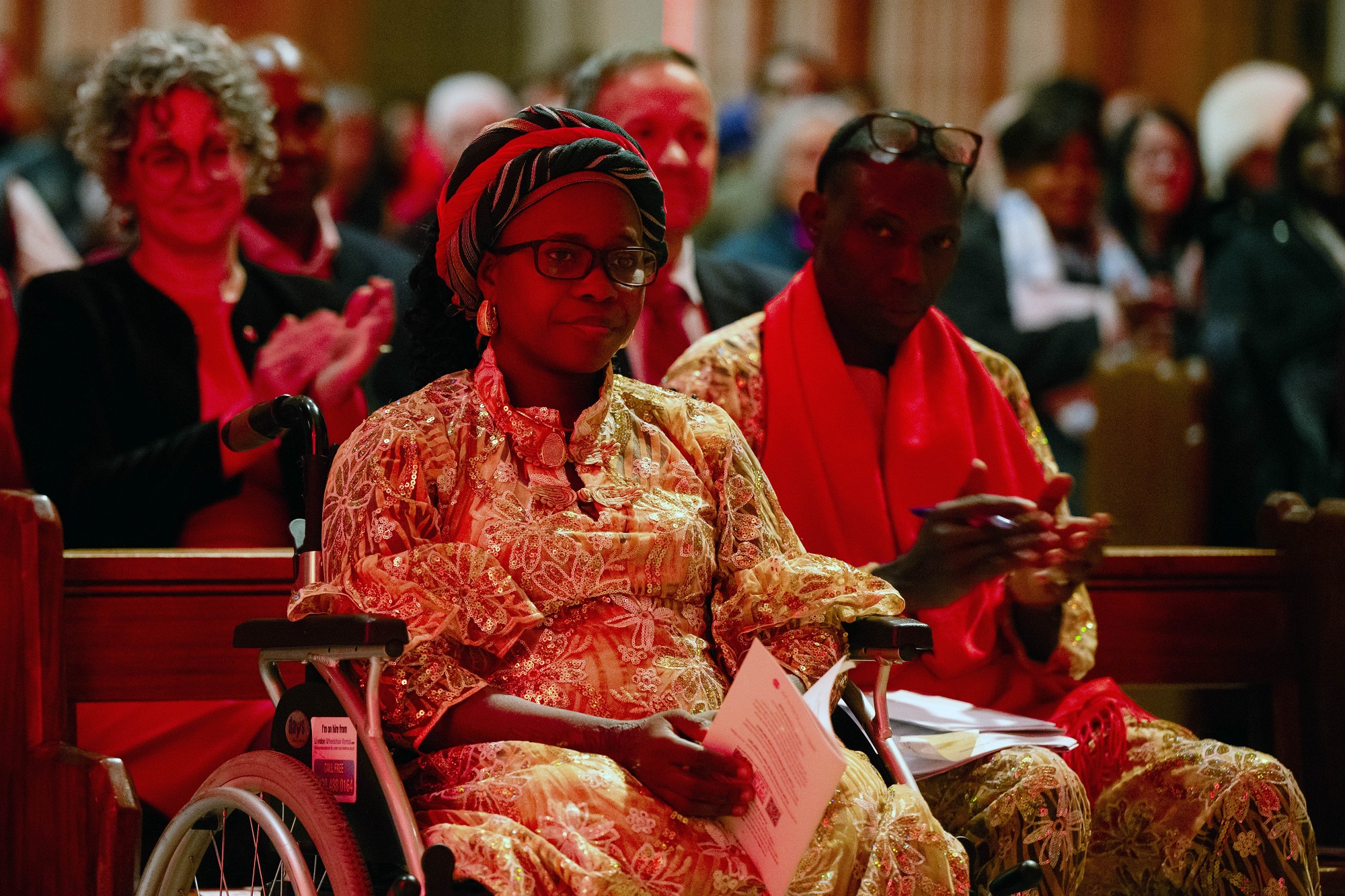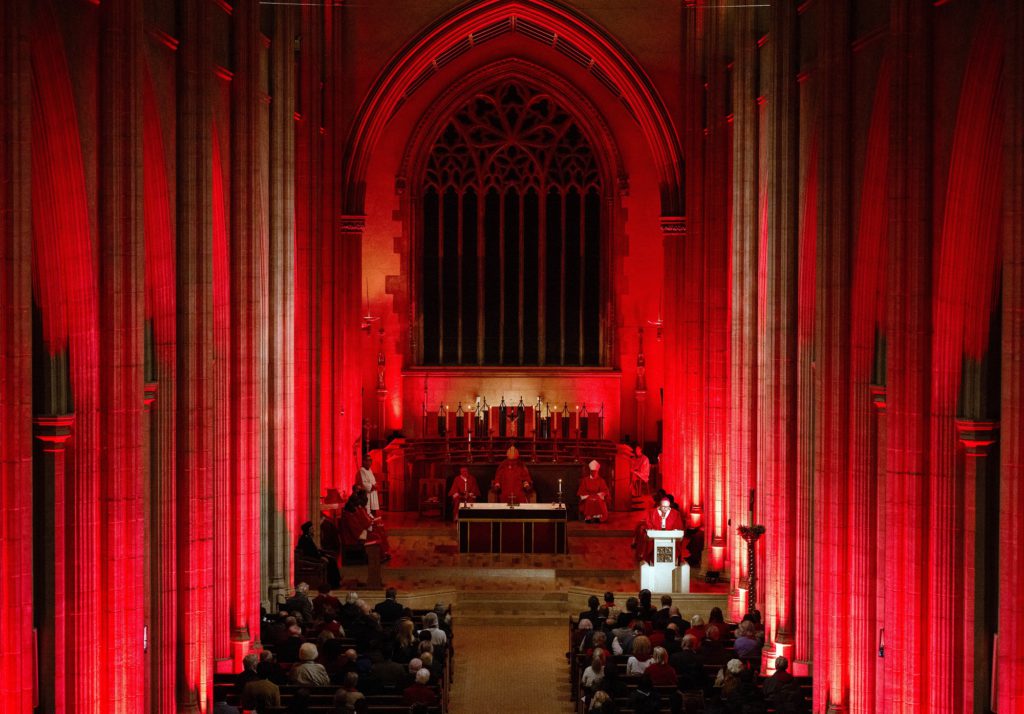Participants in this year’s events heard testimonies from Nigerian, Pakistani and Middle Eastern bishops, as well as life-testimonies by missionaries and victims of persecution.
Thousands of people took part in #RedWeek 2023 events in several different countries, from Croatia to Australia.
The Aid to the Church in Need (ACN) initiative was praised by all who participated, and received a special mention by leading politicians such as Rishi Sunak, Prime Minister of the United Kingdom, who described it in Parliament as “an important moment to demonstrate our solidarity with Christians and all those persecuted around the world for their religion or belief”, adding: “I’m pleased that today we will light up Foreign, Commonwealth and Development Office buildings in the UK in red in support.”

In Rome, Italy, several Government buildings also joined the initiative, including the Senate, the Chamber of Deputies and the Ministry of Foreign Affairs, which were all lit in red, as were several embassies to the Holy See.
Other national governments also embraced #RedWeek, including some from countries that do not have ACN national offices. The government of Hungary organised a conference on religious persecution, inviting Bishop Wilfred Anagbe, from Makurdi, who described with painful accuracy the suffering of over two million Christians in Nigeria who have been internally displaced because of unrest in the country; the government of the Czech Republic began its chairmanship of the International Religious Freedom or Belief Alliance (IRFBA) with a Red Wednesday event in Prague, on 29th November, and the Croatian Parliament hosted a conference focusing on the growing number of religiously-motivated hate crimes occurring in the West, including a presentation of ACN’s Religious Freedom Report (RFR) and the lighting of several government buildings and churches in red.
The Portuguese national office of ACN also used #RedWeek to further promote the RFR, holding sessions with the bishops of Setúbal, Porto, Braga and Évora, in their respective dioceses.

Testimonies from suffering Christians
Germany kept its tradition of marking the initiative by inviting guest-speakers from countries where Christians are suffering from difficulties. This year Archbishop Sebastian Shaw of Lahore, Pakistan, spoke to an audience about the benefits of the interreligious dialogue he has been spearheading in his country, but also decried issues that still plague religious minorities, such as “the presence of hate material in Pakistan’s national curriculum and textbooks, fostering hostility and intolerance. We keep on urging the government to eliminate such content and reconsider the application of Blasphemy Laws. The biased curriculum perpetuates hatred towards religious minorities, leading to alienation and an inferiority complex.”
“Minor girls and women from Christian and Hindu backgrounds often experience abduction, coercion into marriage, and forced conversion to Islam. Following conversion, these individuals find themselves unable to renounce their adopted faith, risking execution if they attempt to do so”, the archbishop added.
Bishop Magar Ashkarian, an Armenian Orthodox prelate from Syria, spoke of the terrible suffering endured in his country due to 12 years of war, a crippling financial crisis and more recently, a devastating earthquake, and asked that people in the West “do your utmost to cease the imposed sanctions and impediments on Syria, which are nothing else than diabolic and dehumanizing, and serve no purpose other than making people’s lives miserable.”
“So that our brothers do not feel alone”
In Latin America the national ACN office in Colombia organised conferences by missionaries working in the country. Sister Mercy Mendoza, originally from Venezuela, said that “as missionaries we are sent to places of conflict, violence, extreme poverty, abandoned by the state, and our witnesses give voice to these people who suffer, but who are accompanied by Jesus, through our work. We give ourselves entirely so that these people can get to know a God who is close, a God who is present, amidst the pain. We give our souls, our lives and our hearts, as Jesus did, so that these brothers and sisters of ours can feel that they are not alone”.
Finally, in Australia the Archbishop of Melbourne, Peter Comensoli, was present at the Night of the Witnesses, in the cathedral, at the end of which he said that “in a country that celebrates the freedom and dignity of each human person made in God’s image, it is important that we make time to pray and reflect on the plight of so many persecuted and oppressed Christians in our world. Night of the Witnesses is a powerful opportunity to come together in prayer, and to hear first-hand the stories of contemporary martyrs who have been silenced for boldly sharing the Word of God. These are our brothers and sisters in Christ, whose stories pull us out of our comfort zone, and model a witness of strength and love in the Lord in all things.”


